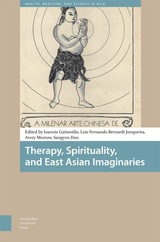

p.B. J. Whiting savors proverbial expressions and has devoted much of his lifetime to studying and collecting them; no one knows more about British and American proverbs than he. The present volume, based upon writings in British North America from the earliest settlements to approximately 1820, complements his and Archer Taylor's Dictionary of American Proverbs and Proverbial Phrases, 1820-1880. It differs from that work and from other standard collections, however, in that its sources are primarily not "literary" but instead workaday writings - letters, diaries, histories, travel books, political pamphlets, and the like. The authors represent a wide cross-section of the populace, from scholars and statesmen to farmers, shopkeepers, sailors, and hunters.
Mr. Whiting has combed all the obvious sources and hundreds of out-of-the-way publications of local journals and historical societies. This body of material, "because it covers territory that has not been extracted and compiled in a scholarly way before, can justly be said to be the most valuable of all those that Whiting has brought together," according to Albert B. Friedman. "What makes the work important is Whiting's authority: a proverb or proverbial phrase is what BJW thinks is a proverb or proverbial phrase. There is no objective operative definition of any value, no divining rod; his tact, 'feel,' experience, determine what's the real thing and what is spurious."

This new collection by our greatest connoisseur of proverbs is the first and only comprehensive compilation of proverbial sayings, British and American, that are actually in current use in this century—old ones still part of common parlance, others recently coined, and familiar ones with new twists. It will be of inestimable value to students of the proverb, of more than passing interest to folklorists and cultural historians, and to the casual browser and language buff a delight.
Whiting has, in the course of fifty years' reading, culled these proverbial expressions from a huge range of sources, some seven thousand books as well as newspapers and magazines. Since proverbs are by nature popular, he has drawn heavily on popular writing such as detective stories and science fiction; with certain notable exceptions (James Joyce among them), major authors, writers of belles-lettres, have proved less fertile terrain than the purveyors of fiction for the masses. No one else has combed a comparable cross-section of the popular literature of this century in search of proverbial matter—and no one now could, given the ephemeral nature of those books. Moreover, only a scholar of Whiting's expertise could confidently identify the proverbial expressions therein, with all their inversions, variations, and parodies.
The volume is patterned after its predecessor, Whiting's Early American Proverbs and Proverbial Phrases. The sayings are alphabetized by key words, usually the first important noun or verb, and there are cross-references to other items of similar gist. The body of each entry consists of quotations, with their sources, in chronological order. For those who may wish to trace the prior history of a proverb or phrase, citations are provided to earlier collections and reference works in which it appears.

This book is a collection of English proverbs, sentences, and proverbial phrases from the Middle Ages. The material is drawn from an exhaustive examination of the surviving texts, mainly printed ones but some still in manuscript. Certain books written later than 1500, usually by authors who were born twenty years or so before the turn of the century, are included, and John Heywood, the first great assembler of English proverbs, is represented by the sayings he compiled.
,"No matter how popular a saying may appear," Mr. Whiting points out in his Preface, "it comes to us at one remove or more from popular usage. The medieval proverbs which survive do so only because they were written down by educated men, none of them collectors from the field. In most cases the sayings were incorporated in literary works by authors who did not hesitate to make changes suggested by context, application, and meter. We sometimes forget that Heywood's Dialogue and Epigrams are poems, although Heywood's standards of prosody are such as to let him use proverbs without too drastic changes for rhyme and rhythm's sake. What we have in most quotations is the proverb, not as an author may have heard or read it, but in the form which suited his immediate convenience or whim."
The sayings are alphabetized by key words and the quotations are in chronological order. Cross-references link sayings of similar import, and the index is a guide to important words other than those by which the alphabetical order is established. References are given to the standard collections of English proverbs, so that the user can trace the later history of many of the sayings.
Filling a long-felt gap in the field, this work will be indispensable to students of Old and Middle English literature and of great value to everyone interested in the rich resources of proverb lore.

Bartlett Jere Whiting, a pioneer and acknowledged master of the lexicography of proverbs, also wrote three seminal articles on general and theoretical aspects of paremiology, the study of proverbs and related speech forms: “The Origin of the Proverb,” “The Nature of the Proverb,” and “The Study of Proverbs.” On the occasion of his ninetieth birthday, friends, students, and colleagues from the Harvard English Department, Whiting’s academic home for nearly fifty years, offer these essential readings to a new generation of scholars and enthusiasts of “the wisdom of many, the wit of one.”
Whiting’s essays are accompanied by an annotated bibliography of his works on the proverb by the best-known contemporary student of the subject, Wolfgang Mieder; and introductory essays by Joseph Harris and Wolfgang Mieder and by Susan E. Deskis place Whiting in the history of international proverb study.
READERS
Browse our collection.
PUBLISHERS
See BiblioVault's publisher services.
STUDENT SERVICES
Files for college accessibility offices.
UChicago Accessibility Resources
home | accessibility | search | about | contact us
BiblioVault ® 2001 - 2025
The University of Chicago Press









